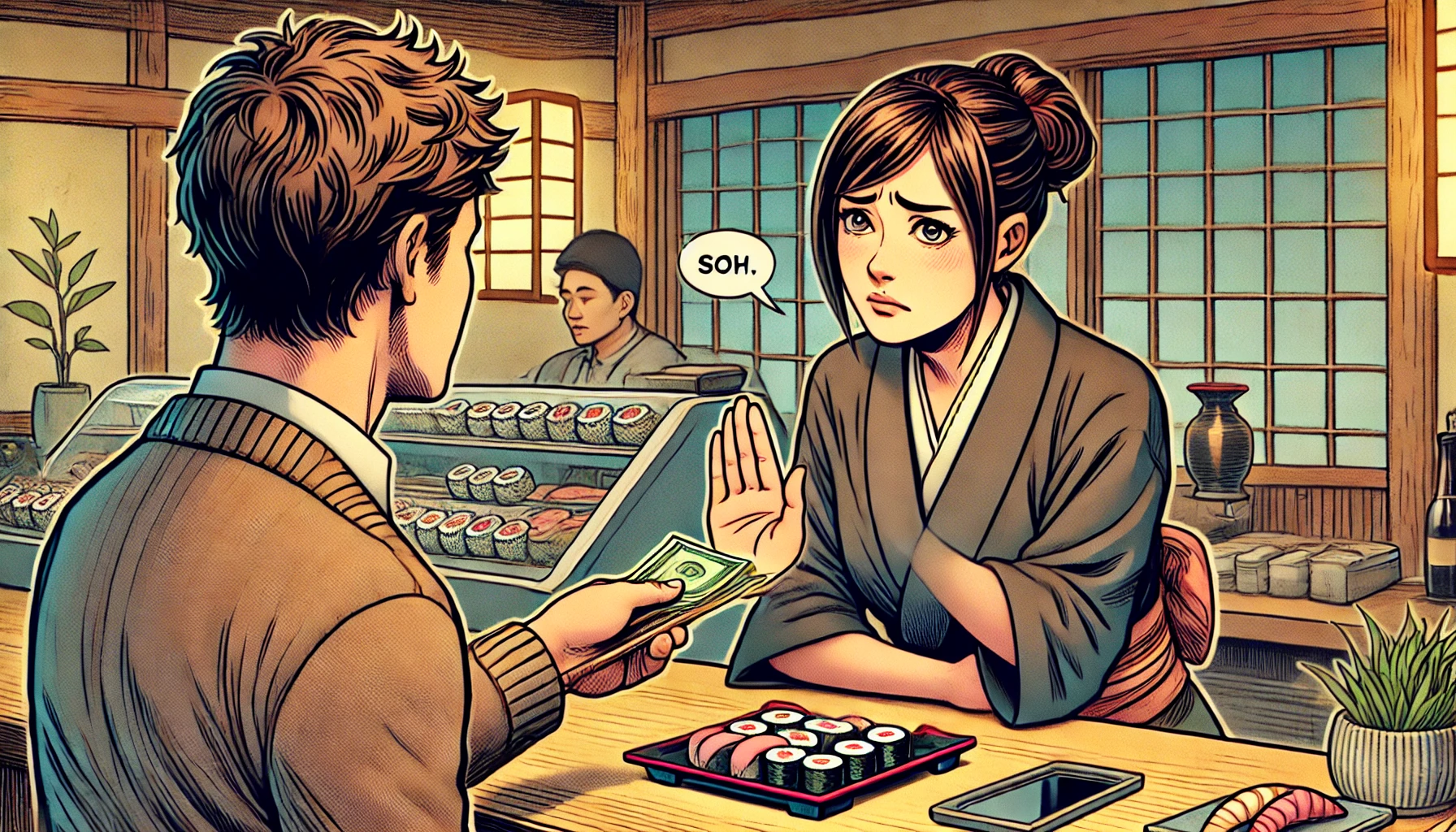
Tipping is not part of Japanese culture—but what do workers in hospitality really think about it? While Japan has long prided itself on providing exceptional service without expecting anything in return, recent discussions suggest that the story beneath the surface may be more complex.
🇯🇵 A No-Tip Nation by Design
In Japan, the act of tipping is often seen as confusing or even rude. Service is expected to be excellent regardless of a bonus. This cultural norm stems from a belief that hospitality should be sincere and not tied to money. Restaurants, hotels, and even taxi drivers typically refuse tips—and many workers are trained to decline them politely.
However, with the growing number of foreign visitors who are used to tipping, the experience of receiving gratuities is no longer unheard of. In major cities and tourist spots, some service staff admit they have received tips—but felt unsure about whether to keep them.
💭 What Workers Really Think
Despite the public stance, some service workers in Japan have quietly expressed different feelings:
✔️ Tips Can Feel Like Recognition
Many report that being tipped—especially by foreign tourists—feels rewarding. The gesture itself is appreciated, even if it’s unfamiliar. It signals that their efforts are truly seen and valued.
❓ But It’s Awkward
Because tipping is rare in Japan, receiving extra money often leads to hesitation. Workers sometimes feel confused or embarrassed. Some even return the money to management or the customer, unsure if it’s appropriate to accept.
💡 Motivational Potential
Some younger workers, particularly in part-time or low-wage positions, say that if tipping were normalized, it could boost motivation. Going above and beyond might feel more worthwhile if extra effort led to direct appreciation.
💬 Cultural Barriers Remain Strong
Even with these sentiments, the broader system resists tipping:
- Many believe it disrupts the principle of “omotenashi” (selfless hospitality).
- Accepting money outside of wages can feel “dirty” or dishonest.
- Workers fear being seen as greedy or unprofessional.
There’s also concern that introducing tipping might encourage favoritism or pressure customers to pay more, weakening the egalitarian nature of Japanese service.
📲 Small Shifts Are Happening
In recent years, some experiments have appeared that resemble tipping—without calling it that. These include:
- Digital “thank you” buttons in transportation and dining apps.
- Anonymous messages of appreciation with small cash bonuses.
- Customer review platforms where users can reward staff indirectly.
These systems are still rare, but they suggest a growing interest in letting customers express gratitude in a modern, culturally sensitive way.
🔍 Summary: What Do They Really Want?
| Hidden Wish | Explanation |
|---|---|
| Recognition | Many staff value kind words or small gestures from customers. |
| Fairness | Some think tipping could reward those who work harder. |
| Stability | Others prefer Japan’s fixed-wage system with no pressure to earn extra. |
🌟 Is Japan Ready for Tipping?
At a societal level, Japan may not be ready to embrace tipping in the Western sense. But service workers—especially the younger generation—are becoming more open to alternatives that allow appreciation to be expressed without discomfort.
A possible future lies in digital solutions or structured reward systems that blend Japan’s culture of selfless service with a more modern desire for recognition.



















































